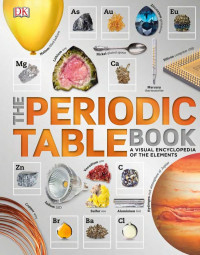- Main
- Society, Politics & Philosophy - General & Miscellaneous Philosophy
- Making the Social World: The Structure...

Making the Social World: The Structure of Human Civilization
John Searle이 책이 얼마나 마음에 드셨습니까?
파일의 품질이 어떻습니까?
책의 품질을 평가하시려면 책을 다운로드하시기 바랍니다
다운로드된 파일들의 품질이 어떻습니까?
There are few more important philosophers at work today than John Searle, a creative and contentious thinker who has shaped the way we think about mind and language. Now he offers a profound understanding of how we create a social reality--a reality of money, property, governments, marriages, stock markets and cocktail parties. The paradox he addresses in Making the Social World is that these facts only exist because we think they exist and yet they have an objective existence. Continuing a line of investigation begun in his earlier book The Construction of Social Reality, Searle identifies the precise role of language in the creation of all ''institutional facts.'' His aim is to show how mind, language and civilization are natural products of the basic facts of the physical world described by physics, chemistry and biology. Searle explains how a single linguistic operation, repeated over and over, is used to create and maintain the elaborate structures of human social institutions. These institutions serve to create and distribute power relations that are pervasive and often invisible. These power relations motivate human actions in a way that provides the glue that holds human civilization together. Searle then applies the account to show how it relates to human rationality, the freedom of the will, the nature of political power and the existence of universal human rights. In the course of his explication, he asks whether robots can have institutions, why the threat of force so often lies behind institutions, and he denies that there can be such a thing as a ''state of nature'' for language-using human beings.
년:
2010
판:
1
출판사:
Oxford University Press, USA
언어:
english
페이지:
224
ISBN 10:
0199576912
ISBN 13:
9780199576913
파일:
PDF, 7.88 MB
개인 태그:
IPFS:
CID , CID Blake2b
english, 2010
파일이 귀하의 이메일로 송부 됩니다. 1-5분 소요됩니다.
1~5분 이내로 파일이 사용자님의 Telegram 계정으로 전송될 것입니다.
주의: 자신의 계정이 Z-Library Telegram 봇과 연결되어 있는지 확인하십시오.
1~5분 이내로 파일이 사용자님의 Kindle 기기로 전송될 것입니다.
비고: Kindle로 보내시는 책은 모두 확인해 보실 필요가 있습니다. 메일함에 Amazon Kindle Support로부터 확인 메일이 도착했는지 메일함을 점검해 보시기 바랍니다.
로의 변환이 실행 중입니다
로의 변환이 실패되었습니다
주로 사용되는 용어
연결된 도서 목록
















































































































































































































































 Amazon
Amazon  Barnes & Noble
Barnes & Noble  Bookshop.org
Bookshop.org  파일을 변환하실 수 있습니다
파일을 변환하실 수 있습니다  더 많은 검색 결과
더 많은 검색 결과 기타 혜택
기타 혜택 
![[美]约翰·塞尔; 李步楼(译) — 社会实在的建构](https://s3proxy.cdn-zlib.se/covers200/collections/genesis/a6b14d76bb4d4d71d6cb7cf940398369bd600cac63fa8fde28f2d21d3d7346da.jpg)







































